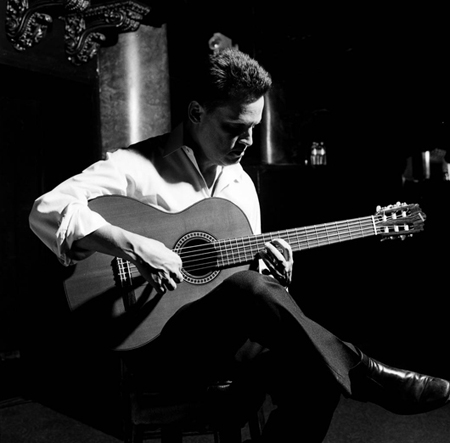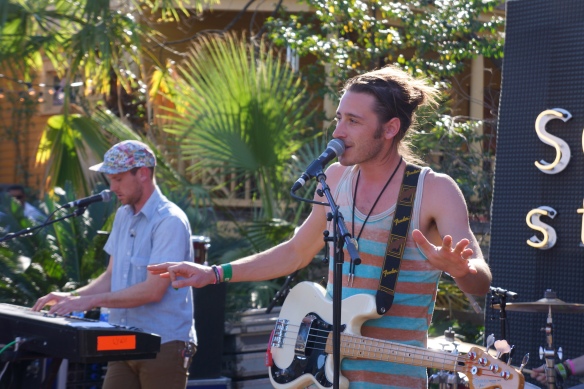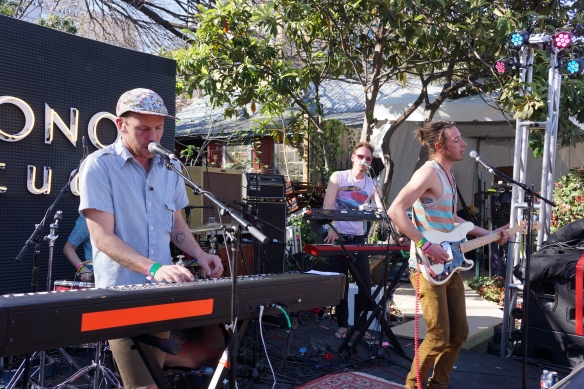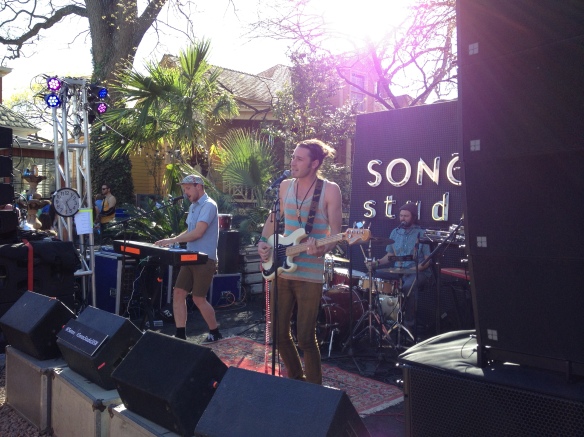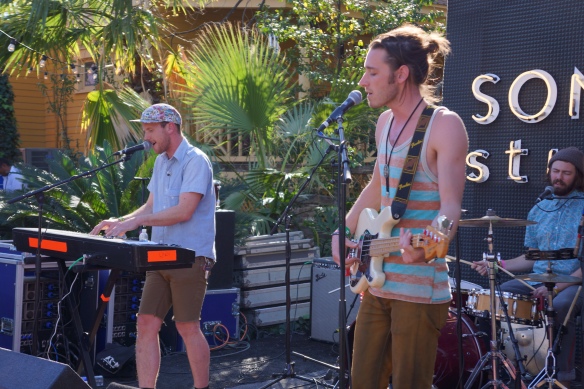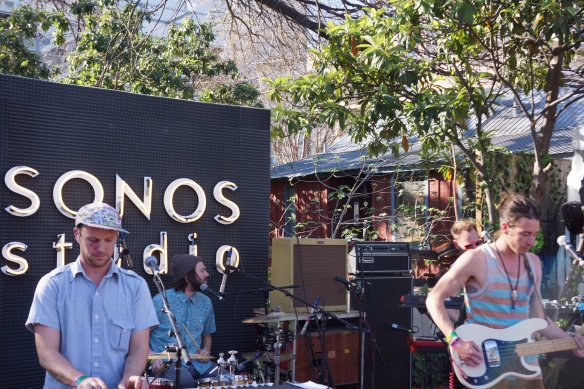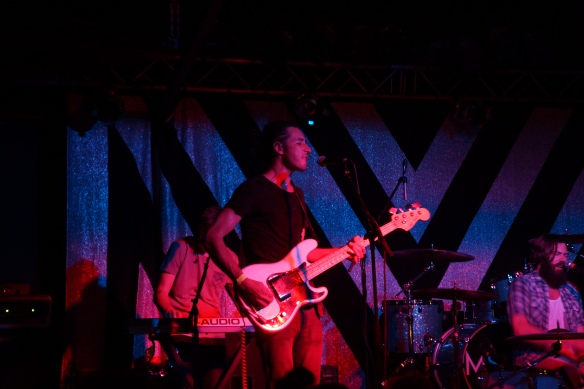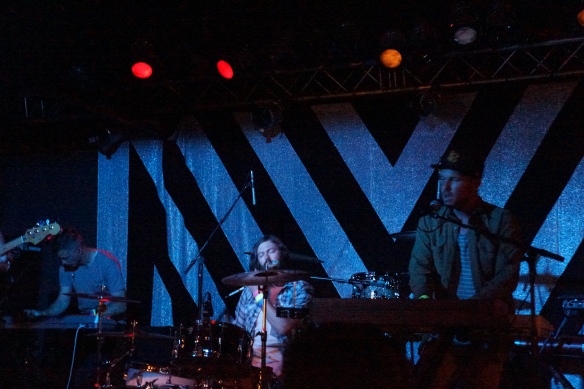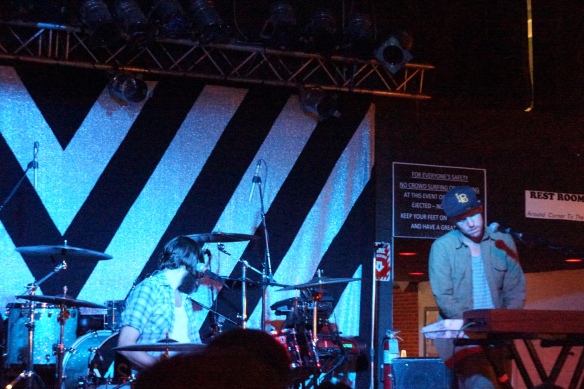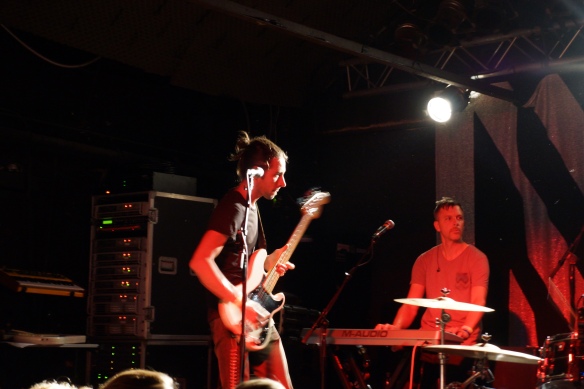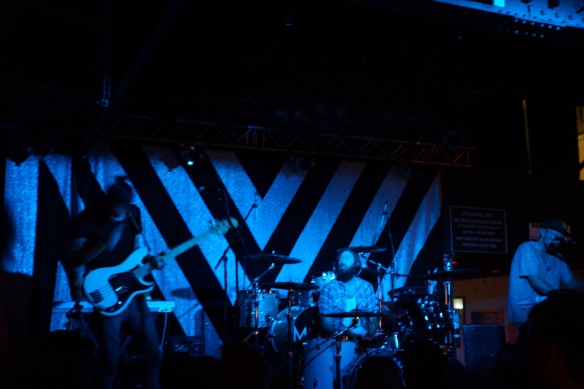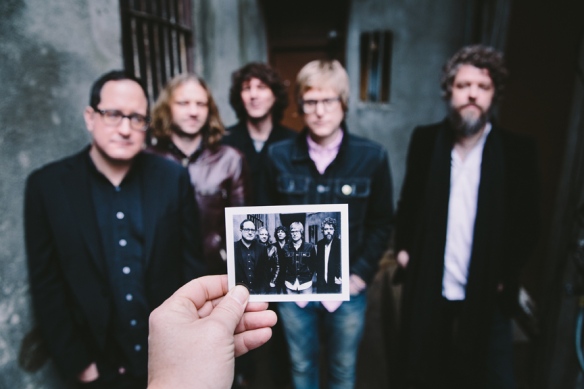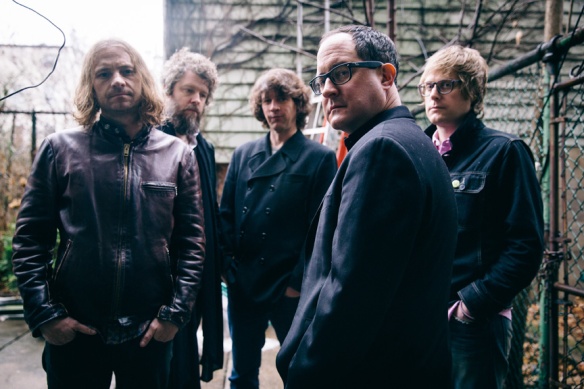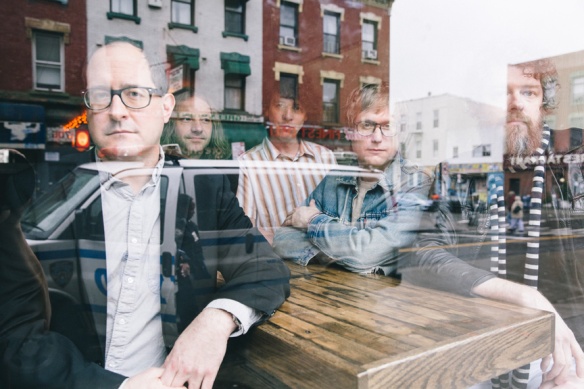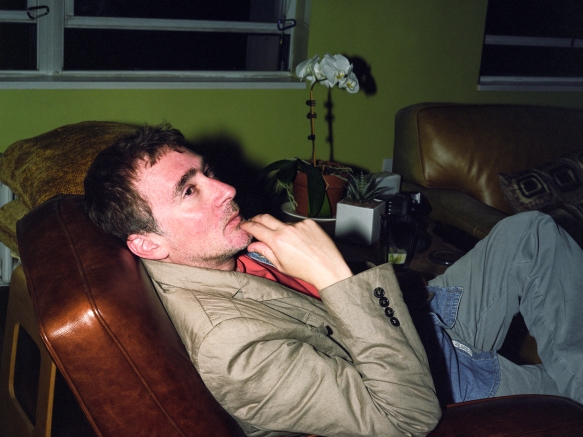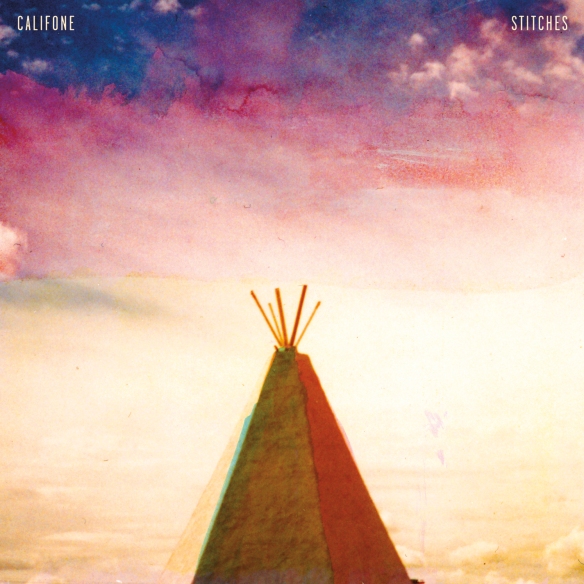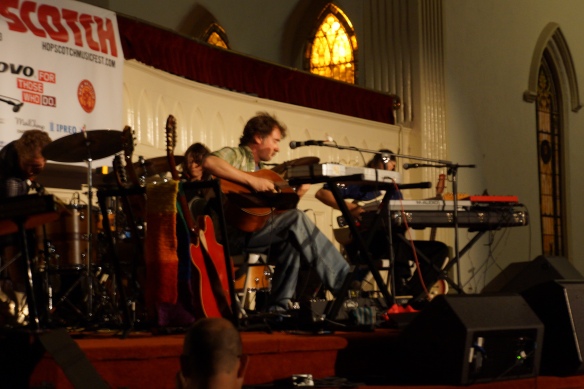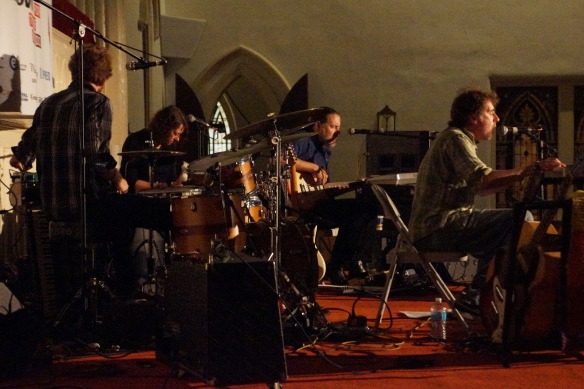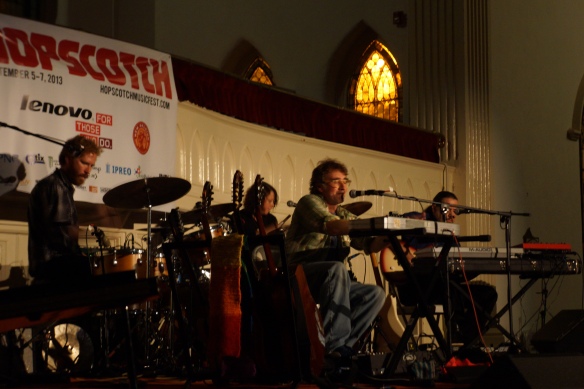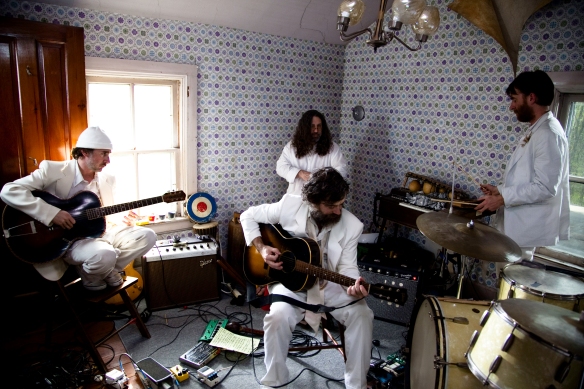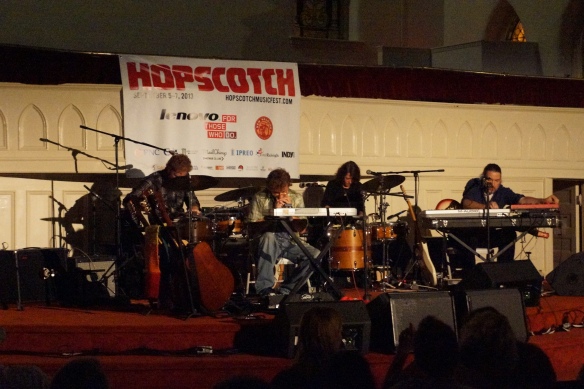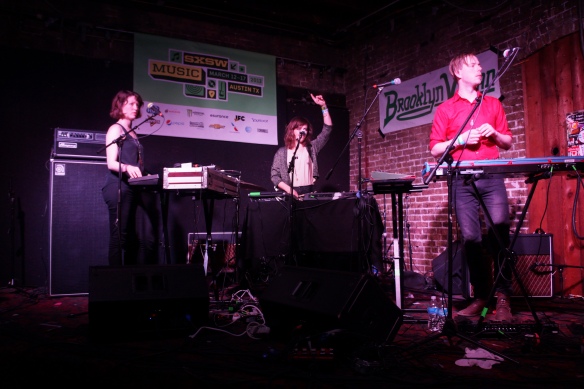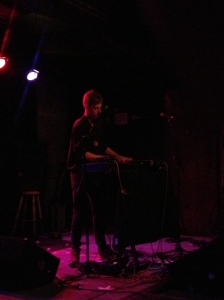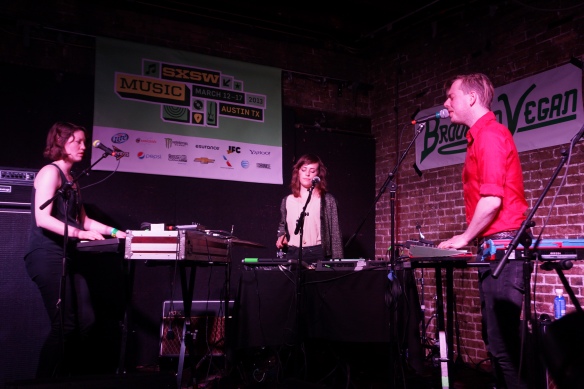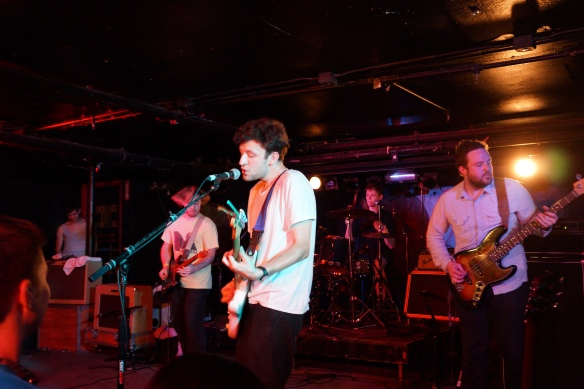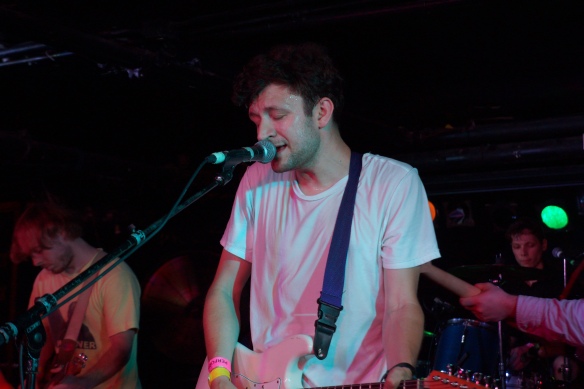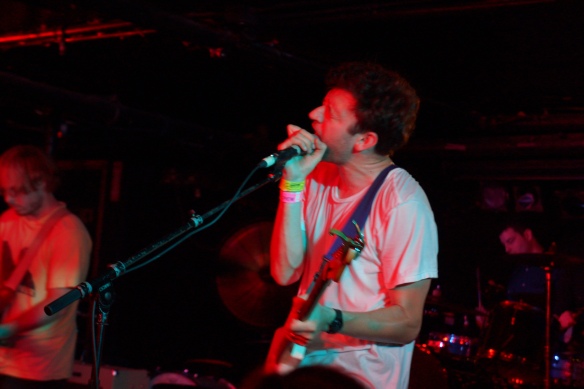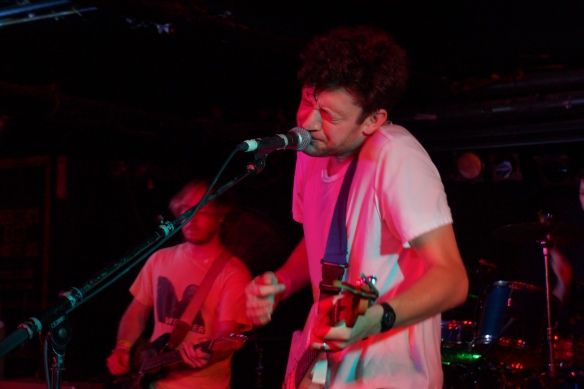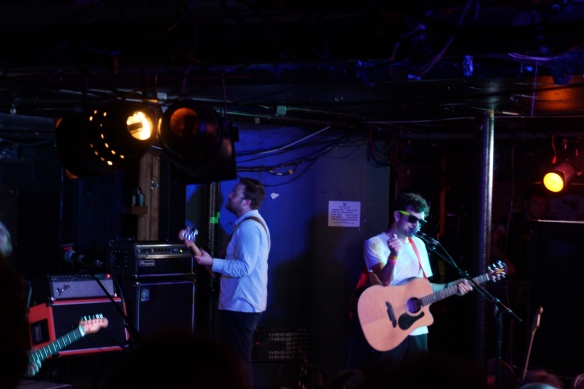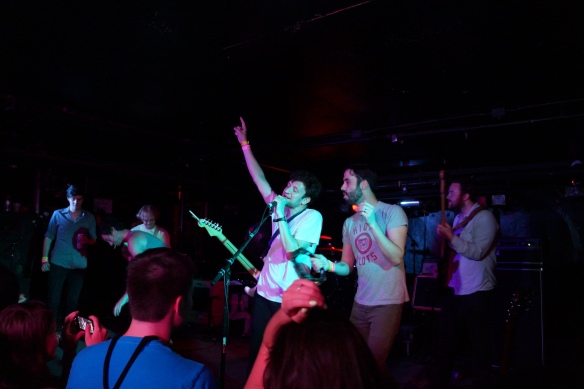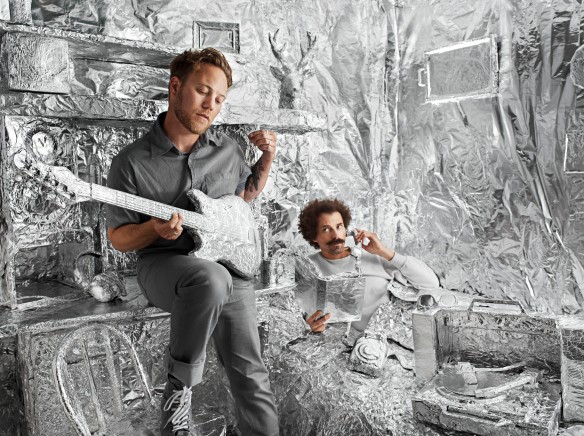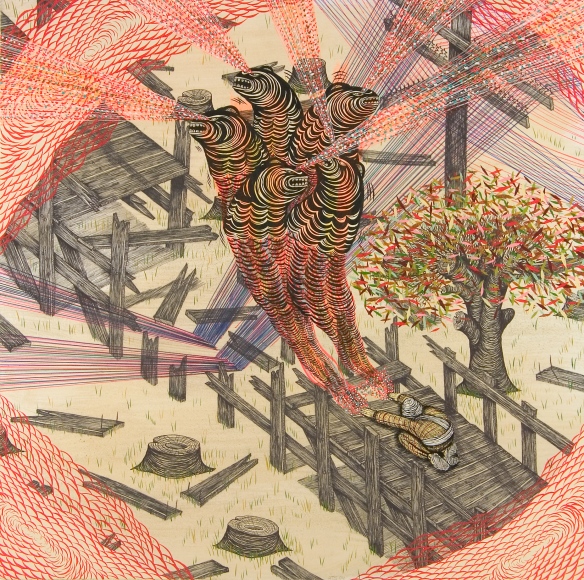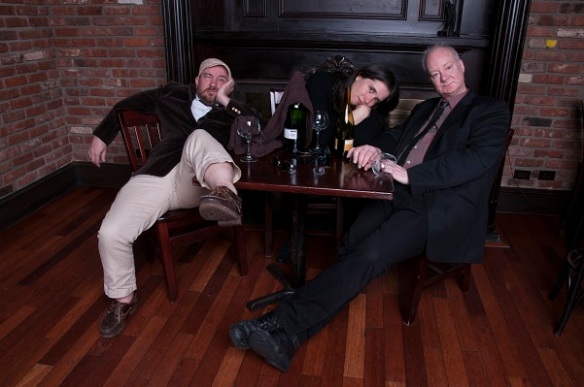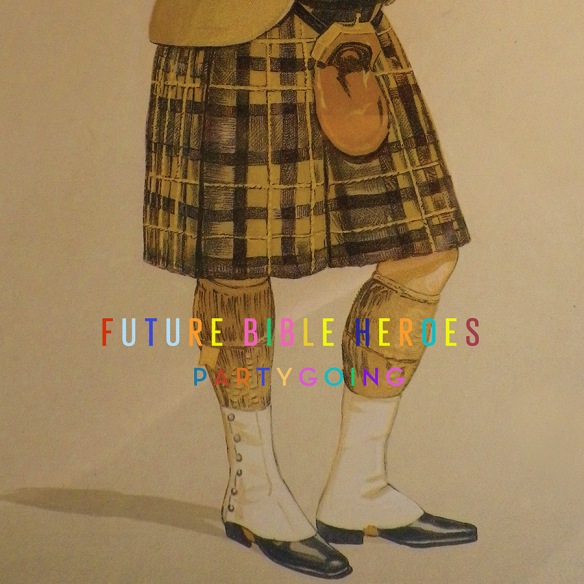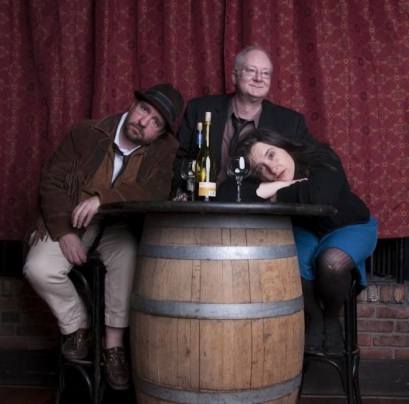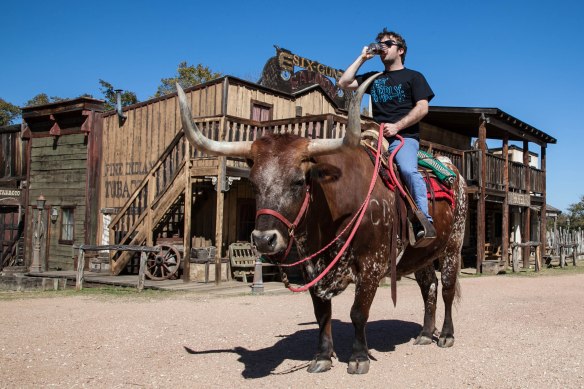 What began as a single short film for Derek Waters’ comedy act would eventually grow into an internet sensation picked up by “Funny or Die”. Now, seven years later, Waters and co-creator/director Jeremy Konner are bringing their “Drunk History” to Comedy Central (Tuesdays at 10pm).
What began as a single short film for Derek Waters’ comedy act would eventually grow into an internet sensation picked up by “Funny or Die”. Now, seven years later, Waters and co-creator/director Jeremy Konner are bringing their “Drunk History” to Comedy Central (Tuesdays at 10pm).
Gathering comedic friends and notable fans, Waters and Konner film drunken narrators as they tell enthusiastic historic tales warped by inebriation and then reenacted by A-list celebrities resulting in true hilarity. While it’s hard to imagine that the participants are actually that drunk, Waters assures us that everything, even the vomiting, is the result of unscripted excess.
In their Comedy Central debut, “Drunk History” hosts some return guests, but also add a new echelon of A-listers. Jack Black and Michael Cera are back, and alongside Dave Grohl, Bob Odenkirk, Lisa Bonet, Bill Hader, Kevin Nealon, Aubrey Plaza, Winona Ryder, Fred Willand and Owen and Luke Wilson, the all-star cast takes on stories about Elvis, Nixon, Nader, Lincoln, Mary Dyer and the Kellogg Brothers among others.
I was lucky enough to catch up with comedian Derek Waters and director Jeremy Konners (separately) on the phone to discuss the past, present and future of their hilarious “Drunken History”. Below are the unedited and exclusive interviews that transpired.
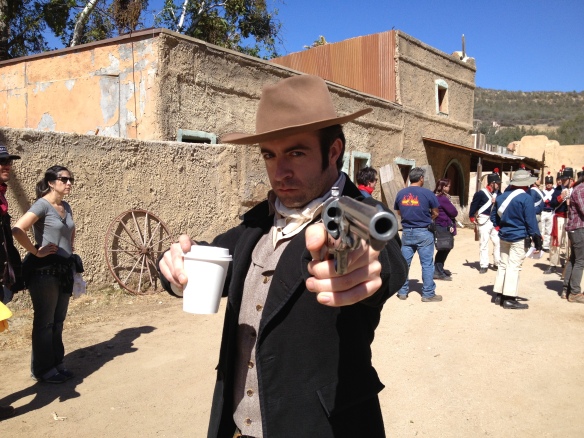 Part 1: Drunk History: An interview with Derek Waters
Part 1: Drunk History: An interview with Derek Waters
Are you excited for the premiere?
Very excited. Very excited. I finally hear from parents, you know? No, I’m just kidding, I’m very close to my family, I hear from them every day. I hear more for them now.
I saw you talk down at SXSW, but could you reiterate how this thing came to be? Was it really just supposed to be one web episode until Jack Black contacted you?
Yeah, it was 2007 and it’s only intent was to be for a live show I was doing for the Upright Citizen’s Brigade called “LOL”. It was my own show and I was trying to show videos. I figured it was better to make people laugh than to put it online. It was right when the internet was being judged by hits over comedy. I’m still a snob, but I was a bigger one back then and I was hesitant whether people would accept just that. I sent it to Conan and the Daily Show in hopes that it could be a monthly sketch. But nothing really happened until we put it on the internet and it got on the front page of YouTube and then Jack Black who knows Jeremy Konners the director, he saw it and said ‘I always wanted to be Ben Franklin’. And that was that. So basically what you said is true. But those were the specifics. You can’t really turn down Jack Black. Why would you?
How did the show come together after all these years? Did you just keep pitching it around?
Well, it never really… people always said what about a “Drunk History” show, and I said it’s not a show, it’s a five minute idea. I never want it to get old and I know what it is. So I thought, well what is it going to be like? What if it’s me going across America trying to understand our country? But that didn’t feel right, so we just broadened the world so it’s just a history show. We’re trying as hard as we can to tell you about history; it just so happens that it’s slightly altered. But each episode is about a certain town and there’s a thru line between three stories and the idea of broadening the world of history so its not just about George Washington and Abraham Lincoln. Now there can be stories about Elvis and all kinds of new worlds. And we can do all stories now if we set the bar here.
How many States did you make it through?
Well what do you mean by that?
How many States do you touch on in the show by wanting to do it as a travelogue from city to city?
We did 7 cities, and the season finality is about the Wild West. But there’s Boston, DC, Atlanta, Chicago, Detroit, Nashville, San Francisco. We’re still working. Oh my god, are we still working? Holy Shit, we have got so much to do. But it’s gotten through a lot of different stages. Comedy Central is the best and they had the best response to the pitch. Anytime you have something, especially if it’s your own project with your friends in your backyard and it becomes semi-popular, I don’t know many stories where people have said ‘Oh I got to do what I wanted at that big network’. Comedy Central has allowed us to stick to that tone where it still feels like you’re with your friends in your backyard making little videos… there are just more movie stars.
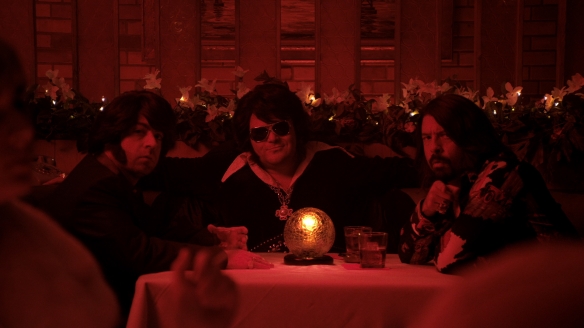 Yeah, how did you get such big names? Are these people all your friends? How did the A-list cast come to be?
Yeah, how did you get such big names? Are these people all your friends? How did the A-list cast come to be?
It was craigslist, that’s all it was. It’s tough times out here right now. No, I knew some of them, but we had a casting director and we would dream a little dream and be like ‘Oh man it’d be cool if Jack Black and Dave Grohl would do the Elvis story’ and they would be like ‘ok here you go’. There’s no real way to say how this all happened, because I still don’t know. I mean, we got Luke and Owen Wilson to play the Kellogg Brothers, I’ve often thought I’m in the Make a Wish Foundation and I’m about to get really bad news. It was very surreal. Most of them, if we didn’t know them, we knew they had an interest in Drunk History or wanting to do it. I guess a lot of people know it’s a lot of fun or they have people who work on it and know it’s a lot of fun and really laid back, so everyone wants to be there and it’s a really rare place to be when you’re working.
Who do you play in the upcoming season?
I’m the host and then I play random parts throughout the series in every episode. I pop up in little parts here and there. I will play Davie Crockett in the season finale, which is probably my biggest role. I don’t want to give away the ending and what happens to me. [Laughs].
When it’s being filmed are you guys drinking or are you fictionalizing what it would look like if you were drunk?
When we’re shooting the reenactments? Never. I mean, definitely in the narration, but when we shoot it we , no—I don’t mean, no that wouldn’t be right—I mean, no we don’t because… There’s the drunk part, but then there’s the other part. I always think of it as ‘man we really want to tell this story so here’s the footage we have and here’s the footage we have of this drunk person’. The comedy comes from trying so hard from something that is so ridiculous that people try and take it seriously. There’s a preview we just put online of Winona Ryder getting hung in the 1600’s and a car drives by in the background. Those are my favorite things that happen during the show. The mistakes. The purposeful mistakes.
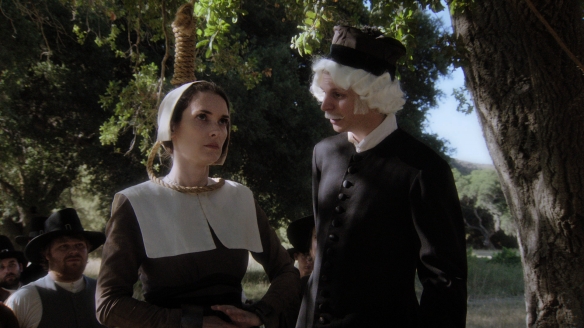 In Texas you said you were going to get audience members to help out with the story ideas in each destination. Did that still happen? Is that how the story ideas came about or is it all you guys?
In Texas you said you were going to get audience members to help out with the story ideas in each destination. Did that still happen? Is that how the story ideas came about or is it all you guys?
The on the road stuff was more about interacting with people about their towns and getting their reactions about the subject. The stages of filming were we had researchers and we would all dig through books and everything we could find and figure out which towns we would go through. Then we would assign our favorite stories to our favorite narrators out here, shoot them and then based off of our favorite stories, we would go on the road. Doesn’t that sound hilarious?
It’s hilarious that you have researchers only to blur the research.
Here, find something really good so someone can forget it. [Laughs] The people that do get assigned the stories DO have interest in it. I wouldn’t let someone do a story that they wouldn’t want to do. It has to be like ‘oh, oh, oh, oh’, or ‘oh my gawd I had no idea about that, I want to learn more’. There has to be a genuine passion about it, where mixed with alcohol is especially funny and hard for them to articulate why they love it so much.
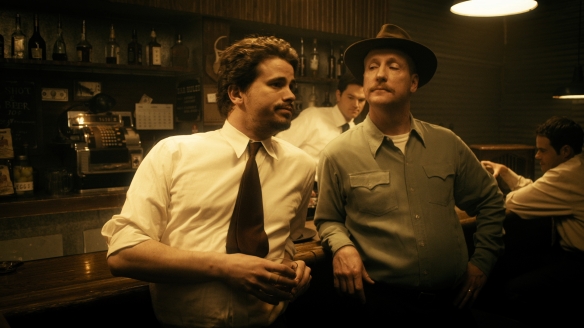 Who are some of your favorite portrayals of characters in the upcoming season?
Who are some of your favorite portrayals of characters in the upcoming season?
MMM, so many. Jason Ritter, I call him the master of Drunk History—so good. He plays my favorite character, Stetson Kennedy. It’s in our Atlanta story. In our Atlanta episode we have a story about J. Edgar Hoover vs. Martin Luther King and we have the invention of Coca Cola, America’s favorite soft drink. Then this one, Stetson Kennedy, who in the 1940’s is the man who came closest to taking down the Ku Klux Klan. It’s really, really cool. He joined them in the 40’s and infiltrated them and learned their secrets and tried to learn a way to fuck with them. Back then radio was a big entertainment facility and “Superman” was the biggest show and “Superman” was looking for a new villain, so Stetson called them and said ‘I think I found a new villain for you; I infiltrated the Klan.” They loved it, so each week Stetson Kennedy would meet with the Ku Klux Klan and called the people at the “Superman” show and each week Superman would take down the Klan with the exact actions that were actually happening within the Klan. All these guys got freaked out and dropped out at the end because their own kids who loved Superman were running around the neighborhood dressed as these really stupid villains known as the Klan and making fun of them. That’s a story where I think it’s fun to get people drunk and have funny tales, but I want stories like that that are true where I’m like ‘holy shit, how do I not know that story?’
If you guys are not drinking during the filming, how do you guys get in character?
Getting in character? I don’t know. Hold on, you know the narration part is the drinking part, right? The reenactments are sober. You’re saying because the people are acting drunk? I don’t know how to answer that.
Does Comedy Central impose any limits on what you say or do? Any quality control if you will?
The only quality control is we have a medic with us when we do it. Luckily having a little more money we have a real medic that stays there so every narrator is taken care of. It should be noted, that every narration is done at their homes. They’re always in good hands. Comedy Central was very good at keeping it in the same light. I don’t think anyone will say you guys changed what used to be good about this. There’s more puking, which I love, but it’s remained true to what the original web series was. It looks a little prettier though.
Is all the puking real?
Oh yeah! Do you know that it’s real.
No, not really.
It’s 100% real. The narrators are completely drunk and the reenactors are completely sober. It’s okay, it’s confusing, but that’s how it goes.
So what does the medic do?
She’s just there to make sure everything is okay. She has a breathalizer. Hilarious, right? A breathalizer! But they’re in their home, so they’re okay. It never gets too crazy. And all the narrators are my friends.
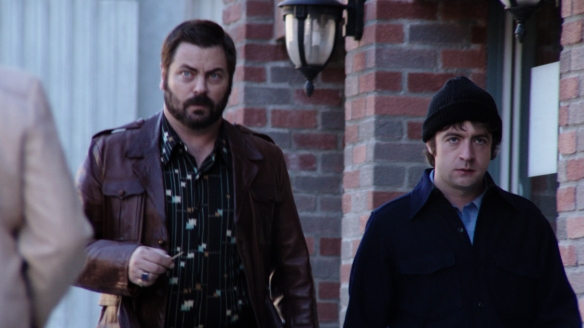 What are your favorite drinks?
What are your favorite drinks?
Um, Zima.
But that’s hard to find nowadays.
It is. But I’m an oldie. I have to go to the vintage store to find it. Yeah, I’m going with Zima. I don’t have favorites.
Do you have tips for drinking etiquette?
Man, don’t drink. I don’t know. For this show—I would say it helps when you’re passionate and when you hold back bullshit, but as soon as you realize you’re repeating yourself, stop! As soon as someone you’re with says ‘you already told me that’, you go ‘okay I’ve had enough. I think it’s time to stop.’ And whenever you think you’re hilarious, you should probably stop.
Do you have any drunken regrets?
Jesus, Nolan. My God! I don’t think I can… How about drunken achievements? Well this is my only drunken achievement. No I don’t have any drunken regrets.
Well that’s good.
Yeah that’s alright. You should get a quote from my therapist though. Ask him about that.
Is there anyone you tried to get before the show that you were not able to?
Well yeah, I wanted Marilyn Monroe… um, yes, but I don’t wanna say their names because it will make them seem like they didn’t want to do it. A lot of it was scheduling. I mean also, if you’re an established actor and someone says do you want to make $0 for one day’s work for a comedy show called “Drunk History”. If you’ve never heard of it, you think where is the evolution of television going. On paper you’re just picturing a bunch of jocks running around and puking, so I understand if people don’t want to do our show in this first season.
Is there anyone outside of the show that you’d like to share a drink with?
Yeah, Eddie Vedder. Yeah, I drank a little bit of wine with him once, but it was too weird to even… sometimes you love someone…like you love Santa Claus, but you’re kind of scared of him too. But Eddie Vedder.
Well thank you, I really look forward to the shows. Congratulations man.
Thank you Nolan, I really appreciate it.
____________________________________________________________________
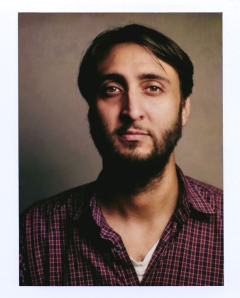
Drunk History Part 2: An interview with Director Jeremy Konners
So you were co-creators with Derek?
Yeah, we started it together and we turned it into a television show together.
So what is your role as director on a show like this?
The role of the director is a lot of initial research and vetting of stories, and figuring out which stories are great and which stories will make great “drunk histories”. We’ll go to an interview and Derek will interview someone and I’ll sit behind him with the camera making sure everybody stays on point… because drunk people tend to veer off the path a little. So, I’ll make sure everyone is telling a story correctly and that we’re going the right way and when we get back it’s very collaborative. Me and Derek have to figure out how to edit these five hour monsters into an elegant drunk history. All of those aspects are collaborative. We don’t write it, but we write it through editing it. That is something that the narrator is responsible for, as is Derek and the narrator and the editor—to make it coherent with just the right amount of incoherence. And then once we get on set its much more of a director role.
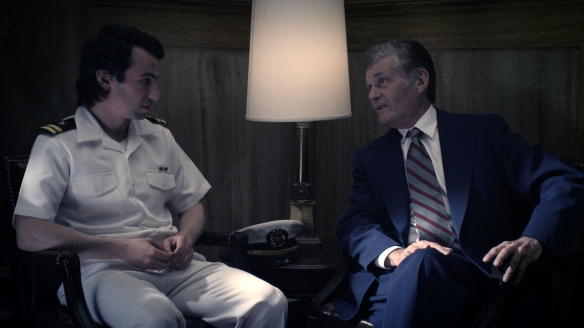 Do these stories get warped off the cuff or do you guys know the way you’re going to take them? Or does the drunkenness allow the story to take its course?
Do these stories get warped off the cuff or do you guys know the way you’re going to take them? Or does the drunkenness allow the story to take its course?
We absolutely allow the stories to take their course. We go in with a plan and the plan goes out the window immediately. What’s been funny and interesting in this process is that people who are funny and know the story very well, they are very ready to tell the story. Before the story they do the research– which they should– they brush up and read over their books. We think we know how the story is going to go—but no. We sat down with [the person] who was doing the Scopes Monkey Trial. We sat down and said “tell us about the Scopes Monkey Trial” and he says, “it’s all bullshit. It’s all propaganda.” And we said, “well what’s the story?” and he says, “it’s all propaganda to bring tourists and to sell trinkets.” But it’s the trial of the century and he says, “no it’s all propaganda and it’s a metaphor for McCarthyism.” So we told the story that he told us. Which is more factually correct. Inherit the Wind is not the Scopes Monkey Trial. It’s an inherent retelling of the story with and agenda. And it was not our agenda. We’re very open to how stories are told and who is the good guy and who is the bad guy. I think we’ve done some really cool episodes. We deal with the Haymarket riots in Chicago. We have the story of Ralph Nader’s rise to fame when he took on GM. We have the fact that we have Watergate from someone who knows who Mark Phelps is and we know who Deep Throat is and we do the story on him.
Did you find yourself having to “can” any footage because people were TOO drunk?
There’s a lot of unpredictability. People are drinking excessive amounts. We have never pushed people to drink to their physical limit. That is not our interest. We like people getting drunk and telling stories– they don’t need to get sick and they don’t need to pass out—but, it sometimes happens and we have to roll with the punches. The great thing is when people throw up they feel great. If there’s a moment when people are getting sick we always think well, in five second they’re going to feel a million times better. I like to say that is it very strange that people are getting drunk and sick on television, but if everyone at home who was getting drunk was talking passionately about history, it would be an awesome world. So, I’m alright with this. I don’t think it provokes bad behavior, I think it’s a cautionary tale.
So when this first came together was this something that came together randomly when hanging out and you thought ‘let’s film this’?
Yeah, we were hanging out a lot and we were friends and we were making a lot of shorts together and Derek came to me and said I was talking to my friend Jake Johnson and he was talking about Otis Redding and he was really wasted. And we thought it was really funny and we could get someone wasted and have them tell a story and reenact it. I said “that’s fucking great, let’s do it”. But you know what, it didn’t go so well the first time. It was a mess. He didn’t tell any of his story. It was boring and it didn’t work. Then we went over to our friend Matt Gaglioti’s house. We got there late, so he already had way more than he thought he was going to have. He was getting pretty tipsy and he asked “Can I tell you about Alexander Hamilton”? Then he literally goes on a 4 and a half hour rant on Meritocracy. He would be like “Do you know what Meritocracy is?”. And we are like “yes you’ve told us, please tell us there’s a way to weave this into the story”. And like magic, he told the story about the duel between Alexander Hamilton and Aaron Burr and it was so amazing the way he did it. It was so simple and funny and the way he said Hamilton called his wife and family. Everything he said had us crying laughing. We had to bite our lips because he was so into the zone and his eyes were closed. We were like little kids at the back of the teacher’s classroom and we didn’t want to snap him out of it. He told it so quickly. What happened with the first one, he told us so quickly as opposed to the other ones, which have lasted hours. We knew we were onto something the second we left. I was such a huge History Channel guy. I love that stuff, but I love it and I was so excited to make fun of it, because MAN it takes itself so seriously.
Describe the setting… You go to the narrator’s house? You drink together? Who knows when it’s time?
Well we’ll ask them to have a couple of drinks before we get there. It is a requirement that it is their booze. We’re not feeding them booze. They’re drinking their own drinks. We’ll get there and because of camaraderie we’ll have a drink with them so they feel comfortable. It’s a strange thing to have a film crew staring at you when you’re getting drunk. But yeah, we’ll hang out and eventually start filming. Derek will go around with them and ask them about pictures on their wall and get comfortable with them.
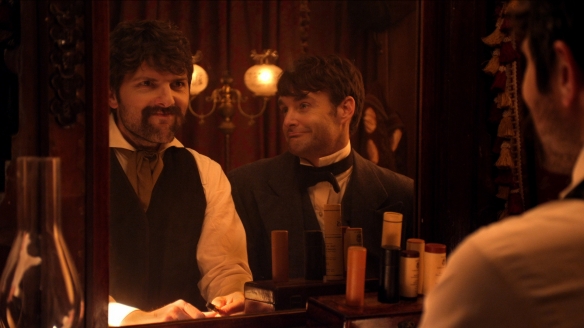 Have you ever been unable to perform the roles of the director because you have had too much to drink?
Have you ever been unable to perform the roles of the director because you have had too much to drink?
I have never indulged too much. I waited for the wrap party to indulge too much. And then I caught up. At the wrap party I was a mess. It was embarrassing.
What are some of the more outrageous or interesting cues you give to actors while they’re playing the roles?
They only thing that I’ve had to do is make sure that people tell the historic parts of the story. Like one person told the story and then started talking about his thoughts on circumcision for an hour. Which really happened. At a certain point I’m like “Hey let’s make sure we get the end of that story because we could easily walk away and not get that story.’ I try not to direct them to change how they are acting. You just try to get them to talk about certain things.
Have you ever had to scrap a story because it wasn’t funny or outrageous enough?
There were stories that we filmed before television, yes. We were very lucky because we have been able to incubate this show for 7 years before having a television show, so we know what works and what doesn’t. Someone would say ‘I know everything about Garfield. Let me tell you about Garfield.” And they would start saying all of the facts and about his life and they knew everything and about every war. But at the end of the day it was a list of facts and not a story. After filming a few of those we had to make sure to that the stories are great, but it’s such a weird thing to have your friend go through with that and not have a finished product for them.
So needless to say you probably don’t do this in your drunken spare time any more.
It’s not what we do in our drunk spare time anymore, but it is the same amount of fun. We haven’t lost that. It’s the same show. Comedy Central has been great. It’s still all the things that we love. It could have very easily been one of those things that was once one thing but then got bigger and everything changed. And then everyone would hate it because it was bigger and everything changed. Everybody can hate it, but it’s the same thing that it always was.
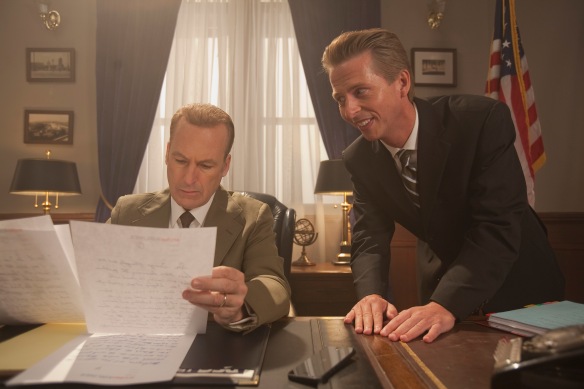 Do have anything that sticks out when you were filming where you said “this is genious, this is gold”?
Do have anything that sticks out when you were filming where you said “this is genious, this is gold”?
Aha. Ha. A highlight… it was pretty crazy working with Alfred Molina. We were in this incredible theater downtown. He was having so much fun. Having Alfred Molina say, “This is so great. This is so much fun. I love this.” It was really a surreal moment and it had taken on a whole new level that I had never ever expected.

